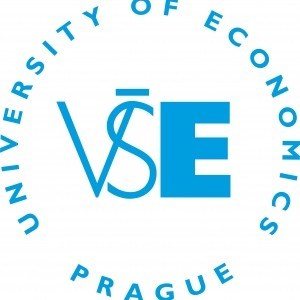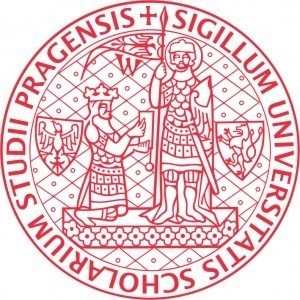Photos of university / #vsecz
The Economics of Globalization and European Integration master’s program at Prague University of Economics and Business offers students a comprehensive understanding of the complex economic processes shaping the modern world. This program is designed to equip students with advanced knowledge and analytical skills necessary to analyze global economic trends, policies, and their impacts on regional and national economies, with a particular focus on Europe. Throughout the curriculum, students explore the theoretical foundations of international economics, the mechanisms of European integration, and the challenges and opportunities presented by globalization. The program emphasizes both economic theory and practical application, preparing graduates for careers in policy analysis, international organizations, governmental agencies, consulting firms, and multinational corporations. Students will learn to critically assess economic policies related to trade, investment, monetary union, and regional development, as well as to understand the legal and institutional framework of the European Union. The program also includes modules on economic diplomacy, sustainable development, and digital transformation, reflecting current trends and future perspectives in the global economy. Educational activities feature lectures, seminars, case studies, and group projects, fostering teamwork and communication skills. The program encourages an international perspective, often involving study visits, internships, and exchange programs to broaden students’ understanding of international economic environments. Graduates will be prepared to contribute effectively to economic policy formulation, research, and advisory roles at a national or European level, with a solid grounding in the economic integration processes that define the European continent today. This master’s degree aims to produce well-rounded professionals capable of analyzing and managing the economic aspects of globalization and European integration in an increasingly interconnected world.
The Economics of Globalization and European Integration programme at Prague University of Economics and Business is designed to provide students with a comprehensive understanding of the economic processes shaping the modern world. This interdisciplinary programme explores the complex interactions between global economic trends and regional integration efforts, with a particular focus on the European Union. Students will examine the theoretical foundations of economics, including microeconomics and macroeconomics, as well as specialized topics such as international trade, monetary policy, economic development, and regional economic cooperation. The curriculum emphasizes the analysis of globalization's impacts on national economies, labor markets, and social policies, equipping students with the skills to assess policy options in a rapidly changing environment.
Throughout the programme, students will study the economic integration processes within the European Union, including the functioning of the single market, customs union, and monetary union. They will analyze the economic policies adopted by member states and institutions to foster economic stability and growth. The programme also incorporates topics related to the political and institutional aspects of European integration, exploring how economic policies are formulated within the context of broader political frameworks and negotiations.
Practical skills form a core part of the curriculum, with opportunities for students to engage in case studies, simulations, and internships. This hands-on approach allows students to apply theoretical knowledge to real-world scenarios, preparing them for careers in international organizations, governmental agencies, consultancy firms, or multinational corporations. The programme is delivered through a combination of lectures, seminars, and workshops, encouraging active participation and critical thinking.
Students will also gain proficiency in quantitative methods and econometric analysis, enabling them to interpret economic data and conduct independent research. The multicultural environment promotes dialogue among peers from various countries, fostering a global perspective on economic issues. Upon graduation, students will be equipped with a nuanced understanding of the drivers of globalization and European economic integration, as well as the analytical skills necessary for effective policy analysis and decision-making in international economic contexts.
The Bachelor's degree program in Economics of Globalization and European Integration at Prague University of Economics and Business requires students to successfully complete a comprehensive curriculum designed to provide a solid foundation in economic theory, international economics, European integration processes, and global development issues. The program typically consists of core courses that cover microeconomics, macroeconomics, economic policy, and quantitative methods, alongside specialization subjects focusing on European Union institutions, regional economic integration, global trade, and economic diplomacy. Students are expected to engage in critical analysis of economic phenomena, participate in seminars and workshops, and undertake practical projects or internships to gain real-world experience. Language proficiency in English is a mandatory requirement, with courses often conducted in English to prepare students for international careers. In addition to coursework, students must pass examinations and complete a final thesis that demonstrates their ability to apply theoretical knowledge to practical issues related to globalization and European integration. Elective courses are offered to allow students to tailor their studies according to their interests, including topics such as sustainable development, international finance, and economic negotiation. Successful graduation from the program also typically involves participation in study trips, visits to European institutions, and networking events aimed at enhancing employability in international and European institutions, consulting firms, or government agencies. Overall, the program aims to equip students with analytical skills, a thorough understanding of European and global economic dynamics, and the ability to evaluate policy options within an international context, ensuring they are well-prepared for careers in economic analysis, policy advising, or further academic study.
The financing of the Economics of Globalization and European Integration program at the Prague University of Economics and Business is primarily structured through a combination of public funding, university resources, and tuition fees. Tuition fees are the main funding source for most students, with the fee amount set by the university for international and domestic students enrolled in master's programs. The university offers various scholarships and financial aid options aimed at supporting talented students and those in need, which reduces the financial burden associated with pursuing the program. Funding from the Czech government and European Union projects also contributes to the development and enhancement of the program's quality and infrastructure. These funds support curriculum development, faculty training, and student exchange programs, promoting international cooperation and ensuring that students receive a contemporary education aligned with European standards. The university actively seeks partnerships with companies and organizations in the public and private sectors to establish sponsorships and internship opportunities, which can sometimes include financial support or stipends for students participating in practical training. Additionally, students may access student loans or financial assistance programs available in the Czech Republic or their home countries. The program's cost structure is transparent, with detailed information available on the university's official website, including tuition fees, possible living costs, and opportunities for financial support. Overall, the program is financed through a combination of university budgets, government and EU funding, scholarships, and individual student contributions, ensuring a sustainable financial model that supports high-quality education and international competitiveness.
The Economics of Globalization and European Integration program at the Prague University of Economics and Business offers students an in-depth understanding of the complex economic processes shaping the modern world. This programme is designed to equip students with comprehensive knowledge of international economic relations, the impacts of globalization, and the policies influencing European economic integration. Students will explore various aspects such as international trade, economic policies, regional economic development, and the socio-economic challenges faced by countries within the European Union. The curriculum emphasizes both theoretical foundations and practical applications, enabling graduates to analyze global economic trends and contribute to policymaking or advisory roles in international organizations, governmental institutions, or private sector companies. The programme typically includes coursework in microeconomics, macroeconomics, international economics, European law, and regional economic integration. It also provides opportunities for internships, study exchanges, and participation in research projects, fostering a well-rounded international perspective. Graduates of this programme are well-prepared to pursue careers in economic consultancy, international organizations, European institutions, or further academic research. The faculty comprises experienced academics and practitioners who bring real-world insights into the classroom, ensuring students acquire relevant skills and knowledge. This interdisciplinary approach prepares students to navigate the challenges and opportunities of a globalized economy while understanding the specific context of European integration efforts. The program is suitable for students passionate about international affairs, economics, and European politics, offering them a unique educational experience that combines theoretical rigor with practical relevance.









